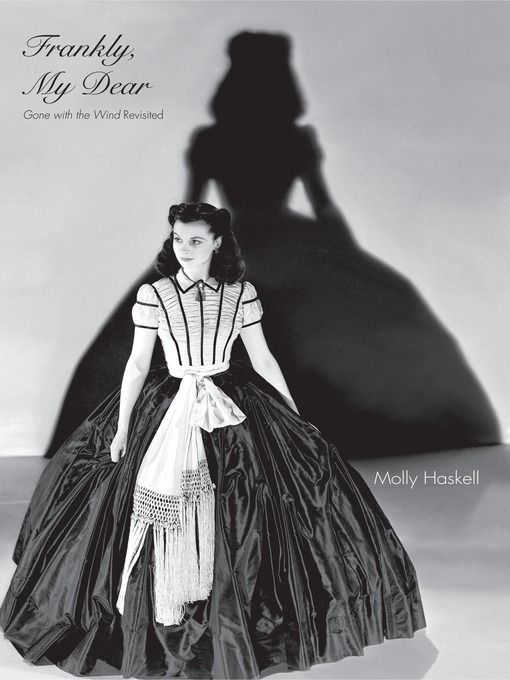How and why has the saga of Scarlett O'Hara kept such a tenacious hold on our national imagination for almost three-quarters of a century? In the first book ever to deal simultaneously with Margaret Mitchell's beloved novel and David Selznick's spectacular film version of Gone with the Wind, film critic Molly Haskell seeks the answers. By all industry predictions, the film should never have worked. What makes it work so amazingly well are the fascinating and uncompromising personalities that Haskell dissects here: Margaret Mitchell, David Selznick, and Vivien Leigh. As a feminist and onetime Southern adolescent, Haskell understands how the story takes on different shades of meaning according to the age and eye of the beholder. She explores how it has kept its edge because of Margaret Mitchell's (and our) ambivalence about Scarlett and because of the complex racial and sexual attitudes embedded in a story that at one time or another has offended almost everyone. Haskell imaginatively weaves together disparate strands, conducting her story as her own inner debate between enchantment and disenchantment. Sensitive to the ways in which history and cinema intersect, she reminds us why these characters, so riveting to Depression audiences, continue to fascinate 70 years later.
-
Creators
-
Publisher
-
Release date
December 16, 2009 -
Formats
-
OverDrive Read
- ISBN: 9780300155655
-
PDF ebook
- ISBN: 9780300155655
- File size: 1027 KB
-
-
Languages
- English
-
Reviews
-
Publisher's Weekly
February 2, 2009
In time for the 70th anniversary of the film version, author and movie critic Haskell (Holding My Own in No Man's Land) brings a scholar's rigor to her loving history of our "American Bible," Gone With the Wind. Vivid profiles of author Margaret Mitchell, starlet Vivien Leigh, and film producer David Selznick re-humanize the work, now known more for its epic grandeur, iconic moments and controversial politics. Haskell draws thoughtful parallels between Mitchell and her protagonist, Scarlett O'Hara, and her affection for these women drives a narrative that gets occasionally bogged down in film production minutiae. Haskell falters while trying to defend Mitchell's dialog and gender politics, even going so far as to imply that she understands Mitchell and O'Hara in a way that other critics do not (Roger Ebert, for instance). Haskell also highlights the impact of the film on popular culture, but doesn't bring anything new to the discussion of America's fascination. Though perhaps too finely focused for casual readers, this sincere, detailed celebration should interest long-time fans and students. -
Library Journal
March 2, 2009
Verdict: Prolific film reviewer Haskell delivers an accessible and entertaining analysis of Gone with the Wind's enduring popularity. Recommended for all collections. Background: The novel and the film versions of Gone with the Wind are American icons, and Haskell (From Reverence to Rape: The Treatment of Women in the Movies) nimbly breaks down the complicated network of stereotypes, archetypes, and mythology at the heart of the story that keep it so captivating and controversial. This book will appeal to anyone who has ever seen the movie, read the book, or just wondered what exactly the fuss was about.-John Helling, Bloomfield-Eastern Greene Cty. P.L., INCopyright 2009 Library Journal, LLC Used with permission.
-
Booklist
February 1, 2009
Hasnt everything worth saying about Gone with the Wind been said? Maybe, but how about another book, anyway, one that gathers the pith of what worthwhile has been said and makes it all freshly interesting? Thats what Haskell gives us, too hastily worded in spots but with thoughtful animation throughout. She keeps both novel and movie at hand, moving from one to the other, comparing and distinguishing what Margaret Mitchell expresses from what obsessive producer David O. Selznick, directors George Cukor and Victor Fleming, screenplaywrights Sidney Howard and a host of fixers (including Ben Hecht and Scott Fitzgerald), and actors Vivien Leigh, Clark Gable, Hattie McDaniel, and others convey. She emphasizes the contributions of Selznick, Leigh, and in an entire chapter, Mitchell, drawing heavily and analytically on existing biographies, the literature of women and the Civil War, Civil War films (especially Birth of a Nation and Jezebel), and film criticism to such engaging effect as to not just revisit GWTW but to revive and intensify the enduring fascination of what Selznick dubbed the American Bible.(Reprinted with permission of Booklist, copyright 2009, American Library Association.)
-
Loading
Why is availability limited?
×Availability can change throughout the month based on the library's budget. You can still place a hold on the title, and your hold will be automatically filled as soon as the title is available again.
The Kindle Book format for this title is not supported on:
×Read-along ebook
×The OverDrive Read format of this ebook has professional narration that plays while you read in your browser. Learn more here.



